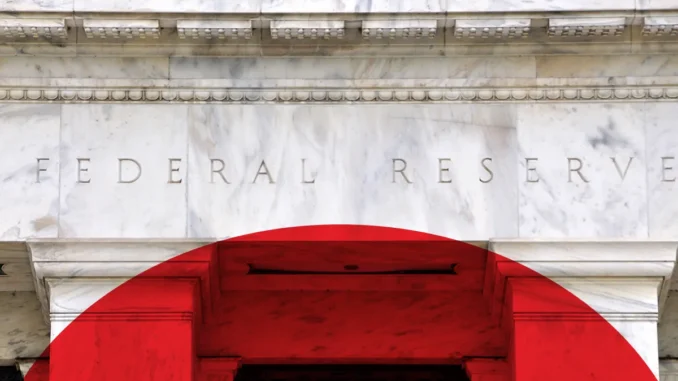
A coalition of housing trade groups — including the Mortgage Bankers Association (MBA), National Association of Realtors (NAR) and National Association of Home Builders (NAHB) — called on the Federal Reserve to provide market certainty about the Fed’s rate path and its plans for the mortgage-backed securities (MBS) portfolio.
Ongoing market uncertainty about the Fed’s rate path has “exacerbated housing affordability and created additional disruptions for a real estate market that is already straining to adjust to a dramatic pullback in both mortgage origination and home sale volume,” the organization said in a joint letter to the Board of Governors of the Federal Reserve System on Monday.
Housing trade groups urged Fed Chair Jerome Powell to make two clear statements — that the Fed does not contemplate further rate hikes; and the Fed will not sell off any of its MBS holdings until and unless the housing finance market has stabilized and mortgage-to-Treasury spreads have normalized.
These steps will provide the market greater certainty about the Fed’s rate path and its plans for the MBS portfolio and reduce volatility for traders and investors, the organizations noted.
“We urge the Fed to take these simple steps to ensure that this sector does not precipitate the hard landing the Fed has tried so hard to avoid,” the letter read.
The central bank currently holds about $2.6 trillion of MBSs as part of its roughly $8 trillion securities portfolio.
In efforts to reduce its balance sheet as part of the plan to tighten monetary policy, the Fed is allowing up to $60 billion a month in Treasury securities and $35 billion in MBSs to mature and roll off from its holdings.
While the Fed officials kept interest rates on hold in its last FOMC meeting — leaving the federal funds rate in a range of 5.25% to 5.5% — a stronger-than-expected jobs report raises the likelihood for the central bank to raise its key rate again before the end of the year.
The Fed’s “dot-plot” of rate projections showed policymakers foresee one more hike by the year-end. The bulk of central bank officials expect to have interest rates finishing the year at around 5.6%.
The spread between 30-year mortgage rates and the 10-year Treasury yield is at historically high levels, signaling deal uncertainty about where the Fed is headed, according to the housing trade group.
Mortgage rates, which loosely follow the movement of the 10-year Treasury yield, are at their highest level in more than two decades. The 30-year fixed mortgage rate was at 7.631% at HousingWire’s Mortgage Rates Center and 7.549% on Mortgage News Daily on Oct. 6. The 10-year yield was at 4.78% on Oct. 6, up from 3.83% during the same period in 2022.
The difference between the current spread and the long-run average indicates mortgage rates for homebuyers across the country are at least 120 basis points higher than they’d otherwise be, according to the MBA, NAR and NAHB.
In other words, the uncertainty-induced mortgage-to-Treasury spread is costing today’s homebuyers an extra $245 in monthly payments on a standard $300,000 mortgage.
“Further rate increases and a persistently wide spread pose broader risks to economic growth, heightening the likelihood and magnitude of a recession,” the organizations said.



